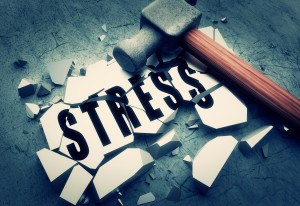There seems to me a misconception out there among some workers that they can get workers’ compensation benefits for things like stress, depression, or anxiety. The truth is that, in Virginia, workers’ compensation benefits are only awarded for psychological injuries if the injured worker first has a PHYSICAL injury. For example, the State of Virginia won’t award you workers’ compensation benefits for depression alone; however, if you had an injury that required surgery and then you developed depression and the doctor says this stems from the work injury then you could have depression recognized as part of your workers’ compensation claim. 
The truth is, many injured workers can develop psychological injuries after they have been a victim of a work injury; the trick is that the doctor has to be able to say that the mental condition was a result of the physical work injury and not due to something else. Psychological injuries are tricky and if you are pursuing benefits for a psychological condition, I always recommend speaking to an attorney who is experienced with these complicated cases.
A Richmond workers’ compensation attorney may be able to help recover compensation for a physical work injury, as well as psychological injuries. In some cases, issues of physical disability may be related to emotional distress. Remember, the emotional distress must be the result of a physical injury if it is to be covered under Workers’ Compensation. However, you should not ignore psychological trauma.
Psychological Impact of a Work Injury
Trauma can significantly affect an individual’s quality of life. Not only do such events increase the chance that a victim will suffer bodily harm, these incidents may increase the chance the individual will suffer psychological harm as well.
In some cases, a traumatic event at work may lead the worker to feel some form of emotional distress afterward. For instance, if a worker was to fall from a great distance, this could not only cause physical injuries but emotional ones as well.
Work injuries may lead to worries and fears that then lead to emotional problems. Some workers may worry especially if they are expected to be out of work for an extended time, are concerned about how they will pay medical bills and/or are worried about how they will take care of their family during this time.
Some studies have also made a connection between stress and chronic pain, according to an article appearing on the Psychology Today website. The article notes that stress may actually lead to chronic pain in some individuals.
Signs of Psychological Injuries
Possible signs of psychological distress may include:
- anxiety;
- depression;
- mood swings;
- anger/irritability;
- feeling disconnected from others;
- confusion;
- problems concentrating;
- guilt; and
- feelings of hopelessness.
These symptoms can last a few days, weeks or even months. The sooner you seek treatment for psychological injuries, the faster you will begin to feel better.
Difficulties Filing a Workers’ Compensation Claim for Emotional Injuries
Adding to the effects of a physical or emotional injury, a worker may find obtaining benefits a hassle. It could be that the insurance company is trying to make light of the injury to reduce the amount it must pay in benefits, or the employer might try to outright deny your claim.
Most employees don’t fully understand what qualifies them for workers’ compensation, so they may be confused about the legitimacy of their claim or the amount of benefits to which they are entitled. If injuries in the workplace led to emotional injuries, you may be able to obtain compensation for these injuries. Emotional distress alone may not be enough to warrant a claim, though.
Proving emotional distress from a work injury may be difficult, however. Generally, it is more challenging to recover compensation for emotional distress or injuries in a workers’ compensation claim compared to physical injuries.
Seeking Help from a Richmond Workers’ Compensation Attorney
With so many complexities surrounding a work injury claim, a Richmond worker’s compensation attorney can be a good resource for help. He or she can work through the concerns and questions you may have. An attorney can also determine if you have a legitimate claim, and he or she can evaluate the types of benefits you may be eligible to receive.
To protect your rights and your claim, speak with a Richmond workers’ compensation attorney at the Injured Workers’ Law Firm. You stand nothing to lose by taking advantage of our no-cost consultation.
If you have questions about your benefits or if you would like more information on the Virginia workers’ compensation system, order my book, “The Ultimate Guide to Workers’ Compensation in Virginia”, or call our office today (866) 608-5893.
About the Author: Michele Lewane
The Injured Workers Law Firm is a Richmond, Virginia based firm solely focused on serving clients with workers' compensation claims in Virginia. If you have questions about your benefits or if you would like more information on the Virginia workers’ compensation system, order our book, “The Ultimate Guide to Workers’ Compensation in Virginia” , or call our office today (804) 755-7755.


